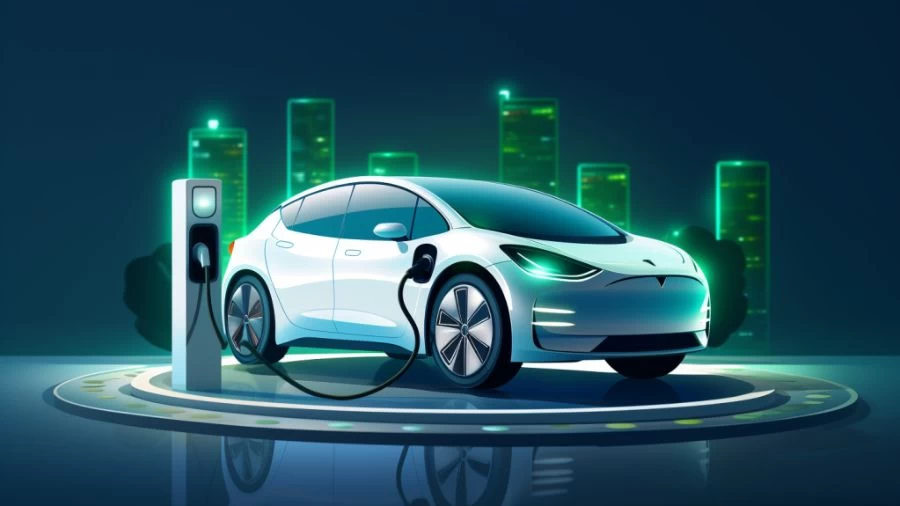
Will Electric Car Rules Cost Automakers Billions?
Recent trade rules concerning electric vehicles are creating financial concerns for European car manufacturers and could potentially cost these manufacturers a hefty £3.75 billion over the next three years.
Published Sep 29, 2023 | Updated Sep 29, 2023 | 📖 4 min read
Will Electric Car Rules Cost Automakers Billions?
New trade rules related to electric vehicles could have significant financial implications for European car manufacturers, according to industry experts. These regulations, designed to ensure that electric cars produced in the EU contain locally sourced components, may cost European manufacturers up to £3.75 billion over the next three years.
Concerns Surrounding New Regulations
One of the major issues arises from something called "rules of origin," which come into effect soon. These rules apply to the transportation of cars across the English Channel, as outlined in the UK-EU Trade and Cooperation Agreement resulting from Brexit. They require electric vehicles to have batteries manufactured either in the UK or the EU. Any cars not meeting this criterion will face a 10% tariff when crossing the Channel.
Implications for Manufacturers and Consumers
These rules were initially intended to safeguard the European auto industry from cheap imports. However, due to slower-than-expected growth in battery production within Europe, carmakers are struggling to comply with these new rules. This situation poses a significant challenge, especially considering that the UK is the largest export market for European carmakers, with 1.2 million vehicles shipped to the UK last year. Similarly, the EU receives more cars manufactured in the UK than any other region.
The imposition of steep tariffs could increase the cost of producing electric cars, which might eventually lead to higher prices for consumers. This, in turn, could negatively impact the market share of European electric vehicles, especially when facing tough international competition.
Complex Balancing Act: Trade Agreements and Industry Interests
In response to this issue, the European Automobile Manufacturers Association (ACEA) is requesting a three-year delay in the implementation of these rules. They are urging the European Commission to take action. Renault's CEO, Luca de Meo, who is also acting as ACEA's president, has expressed concerns about raising consumer prices for European electric vehicles at a time when the industry needs to compete aggressively on the global stage.
To delay these rules, an agreement must be reached between the UK and the EU. While the UK's Business Secretary is optimistic about such an agreement, the EU's internal market commissioner appears less willing to reopen the Brexit deal to accommodate the auto industry's concerns.
This situation highlights the complexities of balancing trade agreements, industry interests, and the need to develop a resilient battery supply chain within the EU. Trade officials from the EU and the UK are set to meet this week, though it remains uncertain whether these new rules will be discussed on the agenda.
The rules governing electric vehicles' components and their impact on tariffs have raised significant challenges for European carmakers and consumers, and finding a solution is crucial for the industry's future.
Will Electric Cars Replace Petrol Cars In Future?
The transition to electric cars replacing petrol cars in the future is on the horizon, but it might take a bit of time. The future of electric cars replacing petrol cars depends on overcoming these challenges quickly and effectively. When electric vehicles become more affordable, driving habits evolve, and range anxiety diminishes, their adoption rate is likely to grow faster. So, while the shift is in progress, it might take a little while before electric cars fully take over. Here's why:
Transition Timeline: Sometime between 2035 and 2040, electric cars are expected to surpass fossil fuel-powered cars in numbers, provided the total number of operational cars in the world remains steady or continues to increase. However, the timeline could be influenced by the development of auto pilot technology.
Challenges to Overcome: There are some challenges that electric vehicles (EVs) need to address for wider adoption:
- Expensive Batteries: EV batteries are costly because they use materials like nickel, cobalt, lithium, and manganese. Bringing down the cost of these batteries is essential.
- Cost of Ownership: While the overall ownership cost of an EV is lower than a gasoline car, the initial purchase price for an electric vehicle is currently higher, which can deter buyers.
- Driving Habits: Changing work habits, like more remote work, might affect how much people drive and their car-buying decisions.
- Range Anxiety: Some folks worry about running out of battery power and getting stranded, a concern known as "range anxiety." This fear could lessen as more charging stations become available and as batteries become more powerful.
Step confidently into the world of Finance with MarketsHost comprehensive resources, ensuring you're well-equipped to thrive in the dynamic financial landscape.
Will Electric Car Rules Cost Automakers Billions - FAQs
1. Will these electric car rules impact all automakers equally?
The impact may vary, but most automakers could face significant costs due to these rules.
2. How much could these rules cost European manufacturers?
European manufacturers might face costs of £3.75 billion over the next three years.
3. Why were these rules introduced in the first place?
The rules aim to ensure that EU-produced electric cars use locally sourced parts and to protect the European auto industry.
4. How might customers be affected by these rules?
Customers could potentially face higher prices for electric cars if automakers pass on the increased costs.
5. What are automakers and industry bodies doing about these rules?
They are appealing for a three-year delay in the rules' implementation and calling on the European Commission to take action.




